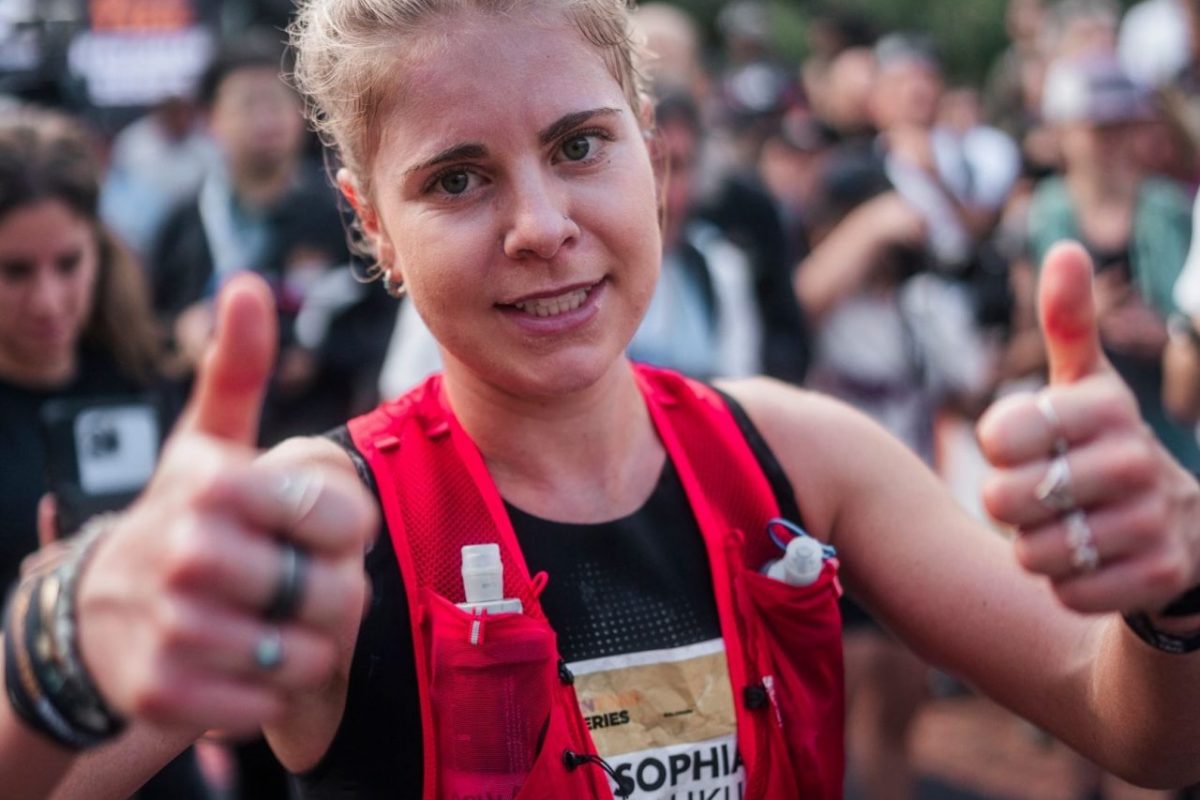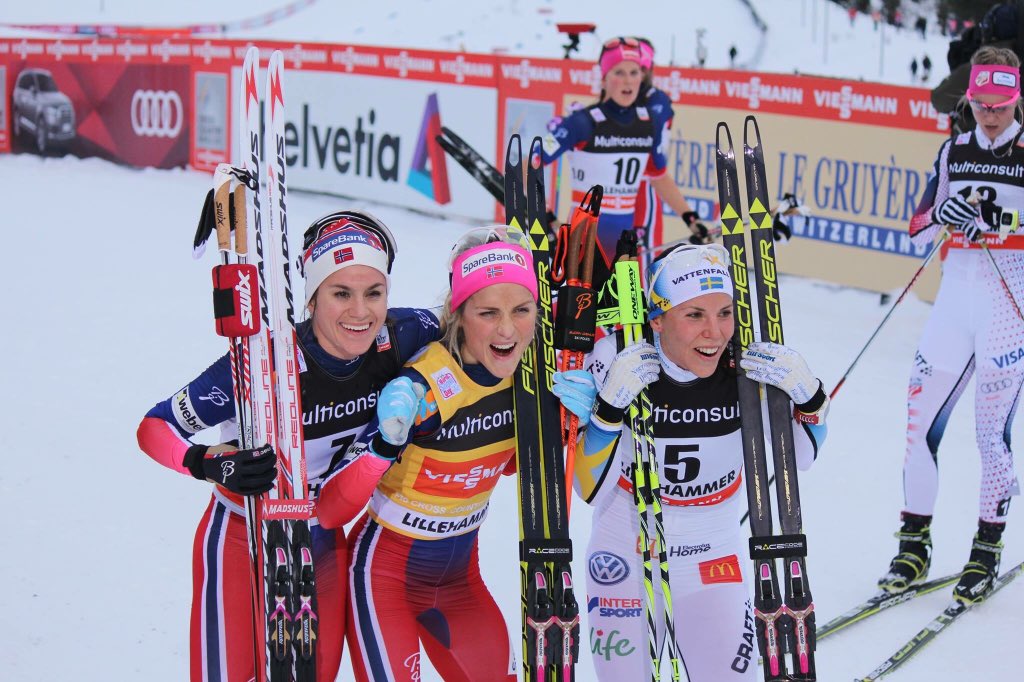
Swedish ski star Charlotte Kalla looked back at her disappointing 2016 season and decided: something had to change.
The 28-year-old has decided to leave the Swedish national team and train on her own with a personal coach.
“I think that currently I have a [great] trainer, and the results of our collaboration can be so much better if I have the opportunity to meet with [him] for monitoring, planning, engineering work and other things,” she told Radiosporten, according to a translation.
Although Norwegian superstar Petter Northug has done the same thing in the past, Kalla’s move is new for Sweden. She is still focusing on World Cup racing and in particular 2017 World Championships, to held in Lahti, Finland, in just nine months time. For that, she will need to be nominated and supported by the national team, but she doesn’t plan to work within their training program in the off-season.
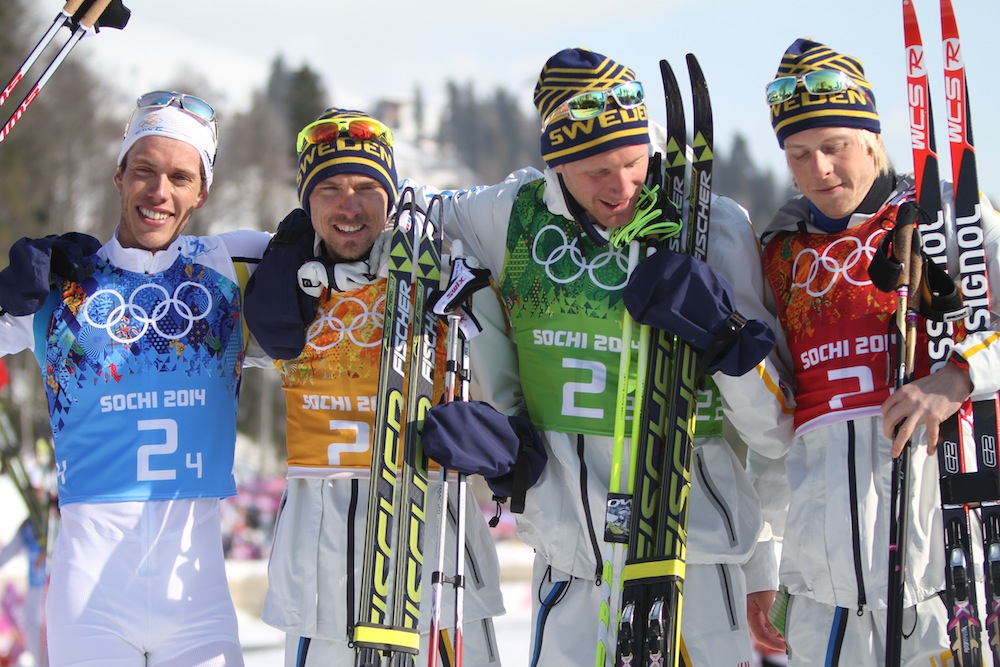
Several high-profile athletes left the Swedish national team last season, including World Champion Johan Olsson and fellow Olympic gold medalist Daniel Richardsson. Richardsson joined a Ski Classics team, Team Exspirit, and focused on long-distance racing while still jumping in three World Cup competitions this year; he also won Swedish National Championships in the 15 k classic.
Olsson did not compete at all this year due in part to injuries, but said in early April that he was motivated for the Lahti World Championships and perhaps even the 2018 Olympics. Both men have now rejoined the national team.
“We are thrilled to have Johan and Daniel back on the team after a year in which they invested in long-distance races,” team director Johan Sares said in a press release. “At the same time, we support Charlotte, who feels the need to test her own setup. We respect it and wish her a warm welcome back in the white suit for the World Cup opener in Ruka, Finland, in November.”
So it’s clear that in Sweden leaving the national team does not prevent an athlete from later rejoining, or from getting race support at international competitions. But Kalla is trying to do something different than either Olsson or Richardsson: focus 100% on the World Cup, but on her own terms.
“There has been much consideration, but in the end I made a decision that feels very right to me,” Kalla told Radiosporten.
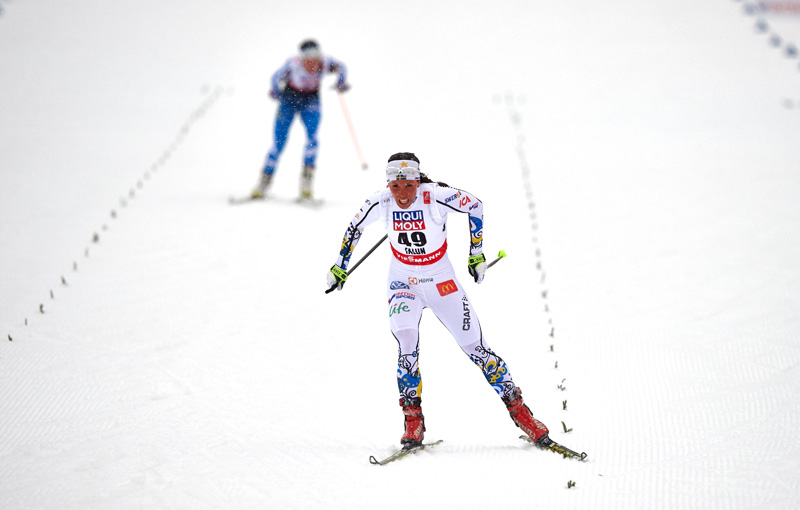
Ingesson is a former skier himself, and a relay medalist from 2001 World Championships. He coached the women’s national team at one point and is now the sports director for Piteå Elit, which Kalla joined in 2012.
Kalla explained that she wanted for a long time to work more closely with Ingesson, but it was difficult to schedule. He now has been promised more time off from his regular job, which means more collaboration with Kalla.
An Olympic gold medalist and World Champion, Kalla has 47 World Cup podiums to her name but snagged just two last season, and not a single win. Nevertheless, she ended up fifth in the overall World Cup rankings at the end of the 2016 season.
“Now I have a freedom to follow what I believe in and do training based on the needs I see,” she told Swedish newspaper Dagens Nyheter. “We will initiate an intro camp with Piteå Elit on Friday in Saxnäs, and then Magnus and I will sit down and make arrangements in more detail.”
Kalla was coming off of a strong season in 2015, where she won the World Championships 10 k skate on home turf in Falun, Sweden, in one of the most impressive performances of the season.
But instead of using that success as a springboard, Kalla struggled this season.
“I was gassed at pretty much the beginning of last summer,” she told Dagens Nyheter. “I had signals that I was tired, but was in good shape around the first competitions. After that it was not as good as my ambitions were. But I’ve learned a lot. I was disappointed with the results, but satisfied with the performance, because I did not give up.”
Some of it was just bad luck, like in the Tour de Ski, where she crashed several times including one particularly rough fall in Oberstdorf, Germany, thanks to sloppy skiing by Poland’s Justyna Kowalczyk.
Shifting away from the national team will be a challenge, she admits, even if it may have benefits.
“The main obstacle has been the social aspect,” she told Dagens Nyheter. “I thrive in the national team group with everything that happens around training sessions, to be able to laugh, cry and dream together.”
In Norway, Northug’s decision to leave the national team was a testy one, and not all team staff were thrilled with it.
Thus Vidar Løfshus, the head of the Norwegian national team, was skeptical of Kalla’s decision.
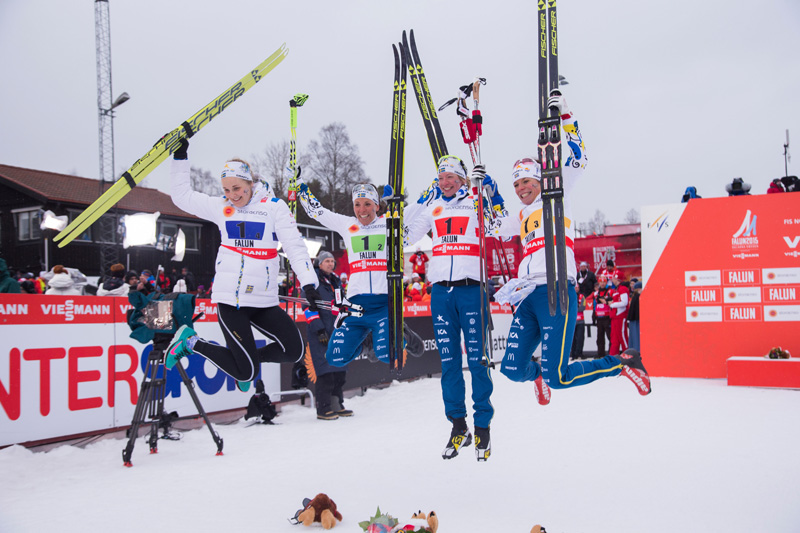
“Oh, it’s not good,” he told Swedish tabloid Expressen. “We in Norway firmly believe in the national team model. We have already had a debate about Petter Northug, who opted out of the Norwegian national team. We believe of course that it is one of the reasons that we are as good as we are, that we have a strong national team model…. Throughout the summer and fall, she will be missing in the Swedish team. This is where the strong team created. Cohesion, team spirit. And yes, according to me it is the strong training groups that create success.”
Swedish team staff weren’t as negative, or at least they chose their words more carefully.
“I respect her decision, then it is naturally sad that she will not be with us,” head coach Rikard Grip told Expressen. “But I have to say the respect and understanding that she wants to try something new… The most important thing is that Charlotte has the motivation and drive. What avenues you choose to go, it is difficult to judge about. Now she has chosen this path. All the details we need to sit down calmly and talk about. We have a good intention to have a good dialogue. Charlotte will be with us in the winter, we need to look at how we solve it in the best way. But I can not answer exactly how it will look.”
“The downside for our part, is that team loses its power,” new national team coach Ole Morten Iversen told Norway’s NRK broadcaster. “Had she been on the team, she would have been given new impetus that had changed the situation properly. I’ve tried, but it has not been enough- but I completely understand that she feels the need to do something new after having her head against the wall for a while.”
Chelsea Little
Chelsea Little is FasterSkier's Editor-At-Large. A former racer at Ford Sayre, Dartmouth College and the Craftsbury Green Racing Project, she is a PhD candidate in aquatic ecology in the @Altermatt_lab at Eawag, the Swiss Federal Institute of Aquatic Science and Technology in Zurich, Switzerland. You can follow her on twitter @ChelskiLittle.

